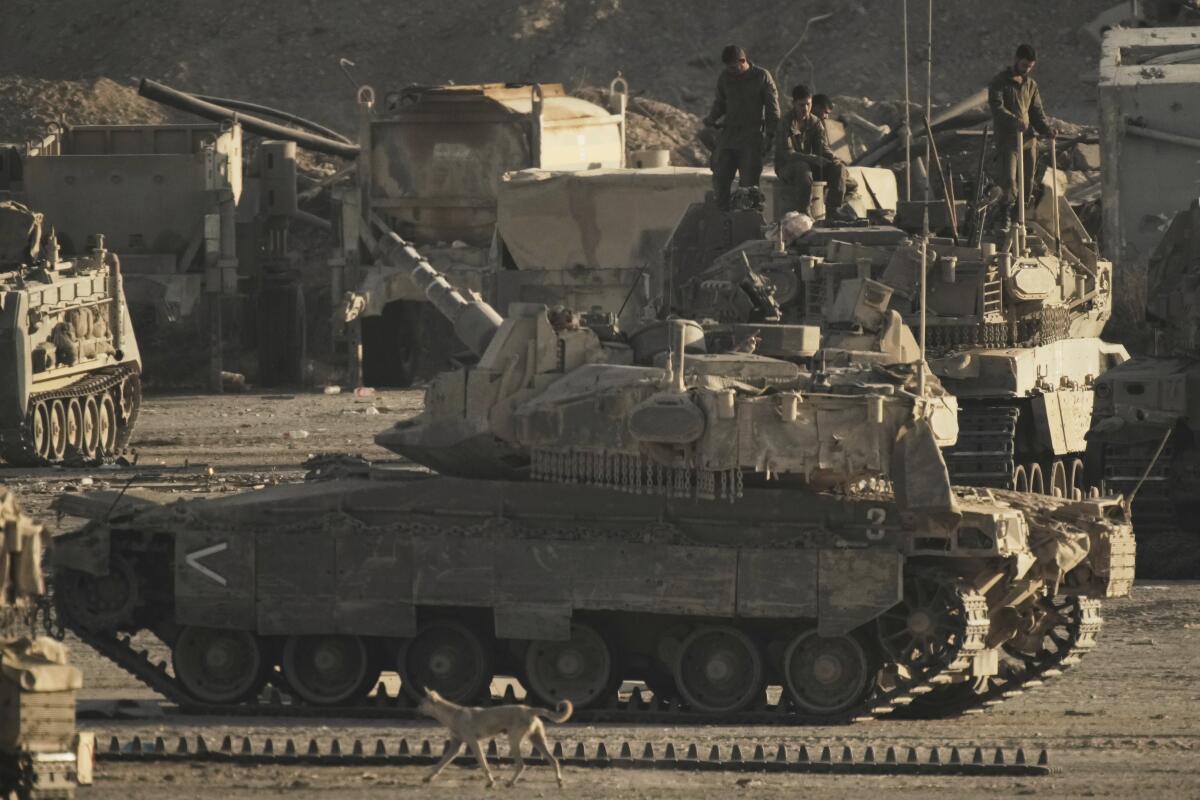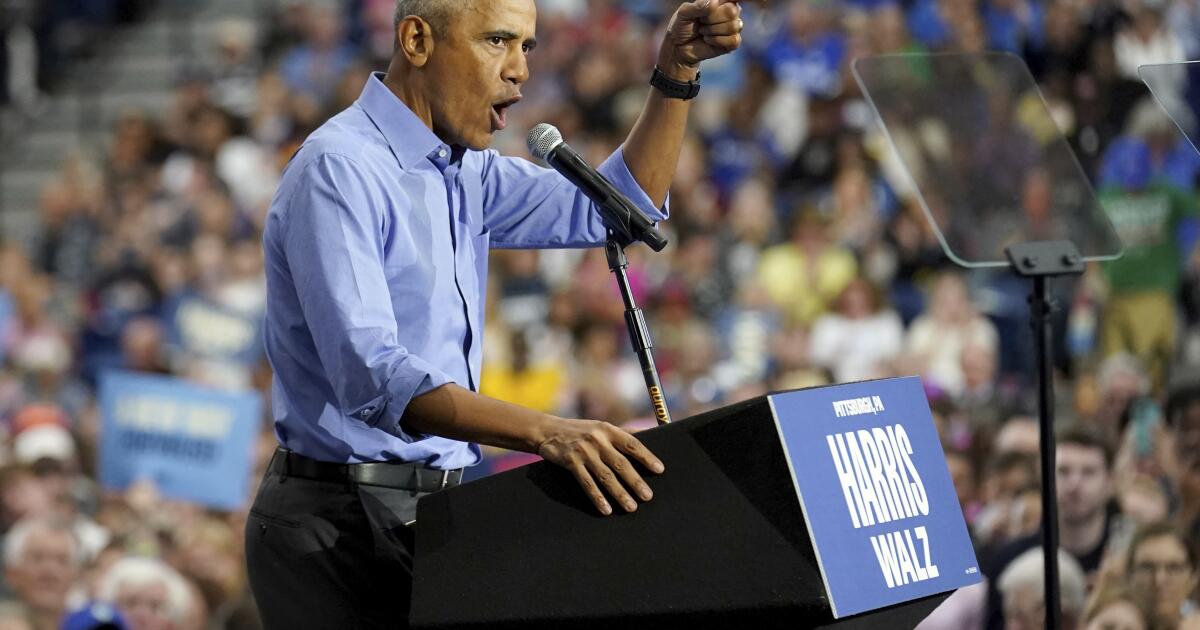
To hear prosecutors tell it, Jose Landa-Rodriguez was public enemy No. 1.
A reputed Mexican Mafia member called “Fox,” Landa-Rodriguez was charged in three cases between 2011 and 2018. The allegations included a murder plot, overseeing rackets in the Los Angeles County jails and pursuing an alliance between his U.S. prison gang and a drug cartel from his home state of Michoacán.
For the record:
6:56 a.m. Sept. 27, 2025The original version of this story misstated Landa-Rodriguez’s sentence. He will serve two more years in prison, not seven.
Landa-Rodriguez, 60, was acquitted in one federal case. But still facing life on state charges, he struck a plea deal that will see him deported back to Mexico after serving two more years in prison.
On Thursday, Landa-Rodriguez pleaded no contest in Los Angeles County Superior Court to making criminal threats and was sentenced to time served, his lawyer Nicholas Rosenberg said.
L.A. County prosecutors had charged that Landa-Rodriguez, while incarcerated in a federal penitentiary for illegally reentering the country, sanctioned the killing of a rival’s underling.
According to trial testimony, Landa-Rodriguez was locked in a power struggle with another reputed Mexican Mafia member, Arthur “Turi” Estrada, over who would collect money from drug sales on California prison yards.
Landa-Rodriguez used coded language in an email to order a hit on an Estrada underling, prosecutors alleged. “Do not let him get into our backyards,” he wrote, according to prosecutors.
Federal authorities alleged Landa-Rodriguez set his eyes on a racket far more lucrative than prison drug deals. In 2013, he was accused of trying to establish a methamphetamine pipeline with a cartel from his home state in western Mexico, La Familia Michoacana.
According to recorded phone calls, La Familia’s leaders feared extradition and wanted the Mexican Mafia to protect them if they ended up in U.S. prisons. In exchange, the cartel promised a bottomless supply of cheap drugs that the Mexican Mafia could sell on American streets.
Landa-Rodriguez was discussing the deal with a cartel representative in recorded prison calls when another Mexican Mafia member, Ralph “Perico” Rocha, heard about the negotiations. Facing extortion charges, Rocha had secretly cut a deal for a reduced sentence. He inserted himself into the talks, arranging meetings in a bugged office building that allowed federal agents to record every word.
Suspicious that he was working for the authorities, Landa-Rodriguez told the cartel to stay away from Rocha. They were all indicted anyway.
The case against Landa-Rodriguez and four other Mexican Mafia members was roiled when it emerged that Rocha had secretly recorded himself disparaging his government handlers. Landa-Rodriguez was acquitted of all charges in 2019.
But the verdict didn’t mean Landa-Rodriguez walked out of jail.
In 2013, prosecutors alleged in a second federal indictment, Landa-Rodriguez seized control of the Los Angeles County jail system, the country’s largest. According to prosecutors, he oversaw the lucrative schemes the Mexican Mafia uses to extract money from the 6,000 or so Latino prisoners who make up more than half of the county’s male inmate population.
Landa-Rodriguez allegedly received a one-third cut of all drug sales within the jails, leading prosecutors to dub their investigation “Operation Dirty Thirds.” He was also accused of profiting from an extortion racket called “the kitty.”
Landa-Rodriguez’s former right-hand man, Luis “Hefty” Garcia, testified in 2022 that every Latino inmate was required to contribute $1.50 worth of items — food, clothing or hygiene supplies — for every $7 spent at the commissary. The “kitty” is then resold, creating a secondary market within the jails that is cheaper than the commissary.
“It may sound like a small amount,” Garcia said, “but in the big picture, it’s a large amount of money.”
Every week, Garcia testified he collected $1,500 to $2,500 from “kitty” sales at Men’s Central Jail, $1,000 from Twin Towers and about $3,200 from the jail complex in Castaic known as Wayside, Garcia testified. This adds up to about $23,000 a month.
After seven years of litigation, hearings and the trial of a co-defendant — Landa-Rodriguez’s former lawyer — Landa-Rodriguez pleaded guilty to racketeering in March.
In his plea agreement, he admitted the Mexican Mafia engaged in murder, kidnapping, extortion, robbery and witness tampering to “promote a climate of fear” within the jails. He also acknowledged putting an unnamed rival on the “green light list” — the Mexican Mafia’s hit list — in 2015.
In a sentencing memo, lawyer Vitaly Sigal said his client has been incarcerated since 1998. When Landa-Rodriguez was last free, Sigal wrote, “Bill Clinton was the president of the United States, the internet was a relatively new concept that needed to be accessed via dial-up modem [and] the top-grossing movie in the world was Titanic.”
Sigal said Landa-Rodriguez plans to return home to Michoacán after serving his time and accepting deportation.
The cartel with which Landa-Rodriguez once negotiated, now rebranded as La Nueva Familia Michoacana, was designated by the U.S. Treasury Department in April as a foreign terrorist organization.
In August, Mexican authorities handed over Servando Gómez Martinez, a La Familia leader called “La Tuta,” to face drug trafficking charges in New York.
But according to his lawyer, Landa-Rodriguez has no interest in prison politics or transnational criminal alliances. He dreams of returning to his family’s ranch, Sigal wrote, where he lived before coming to the United States at 15, before he ever joined a South L.A. gang or knew the inside of a jail cell.
Today, “he seeks no power, status or conflict,” Sigal wrote. “Only the quiet dignity of growing old in the company of loved ones.”



